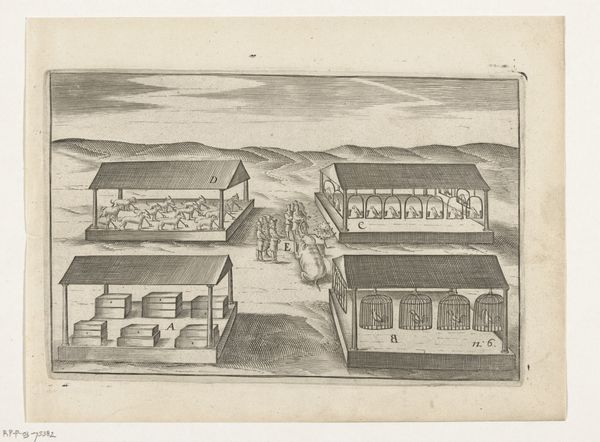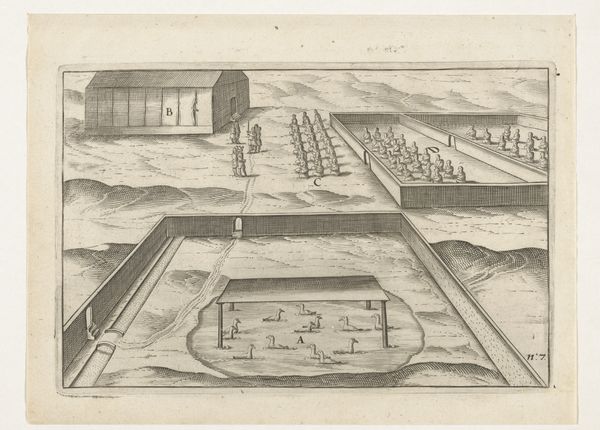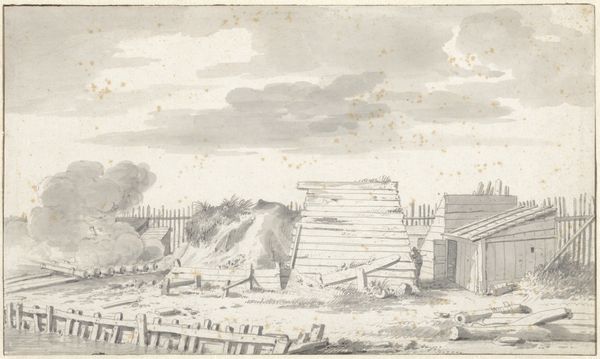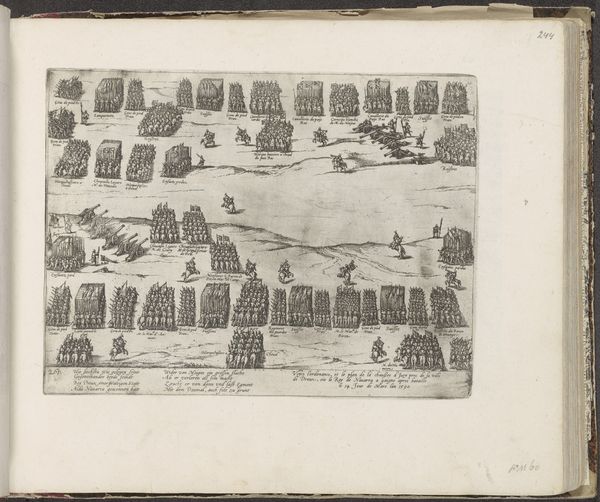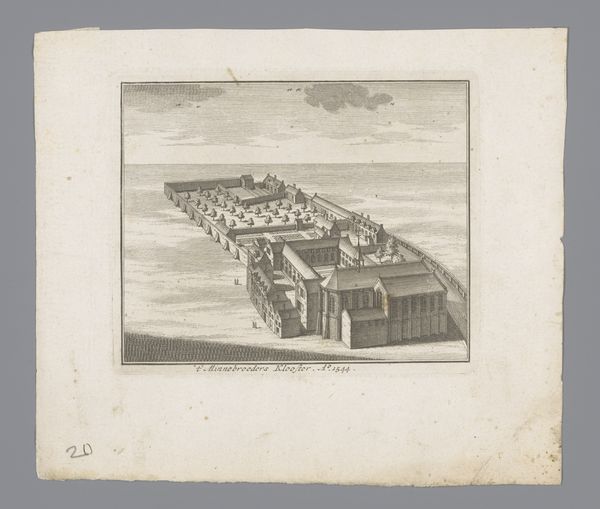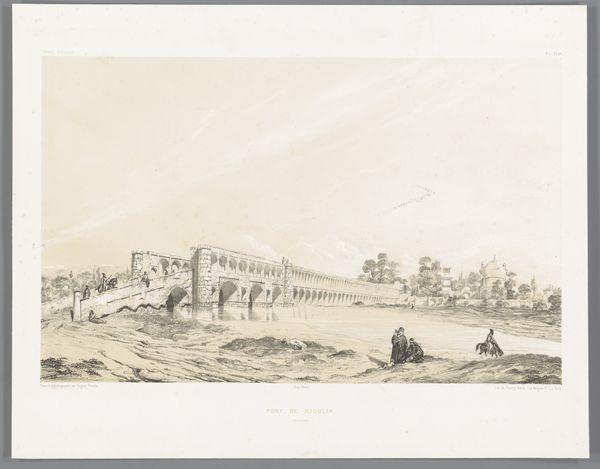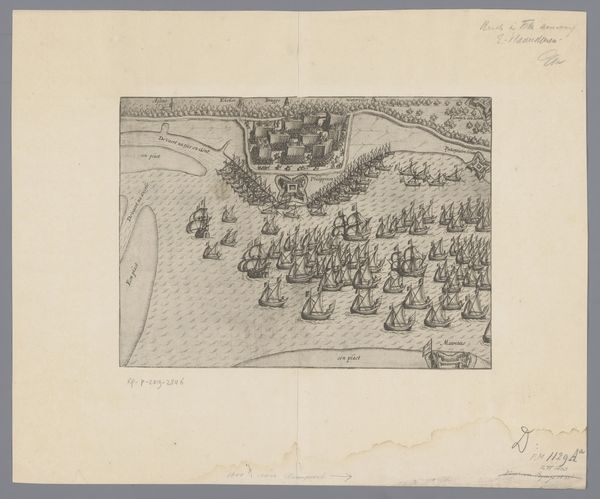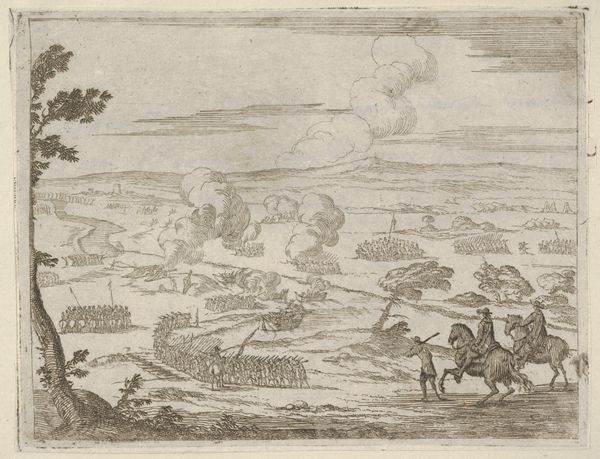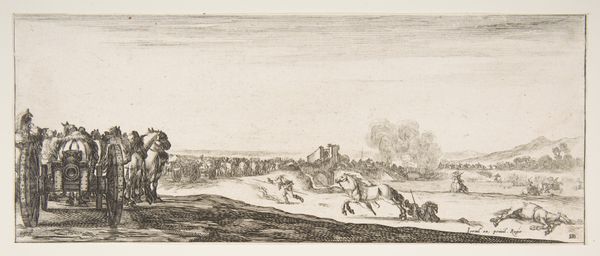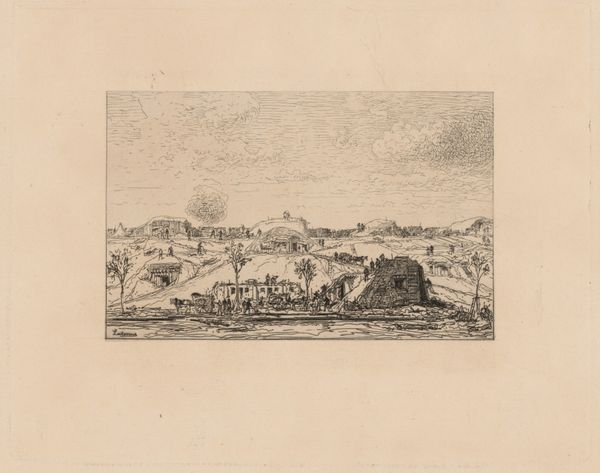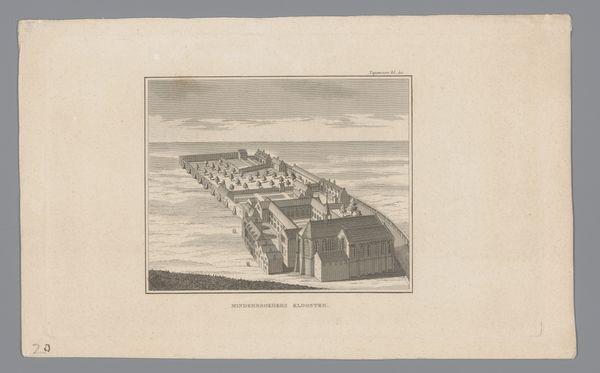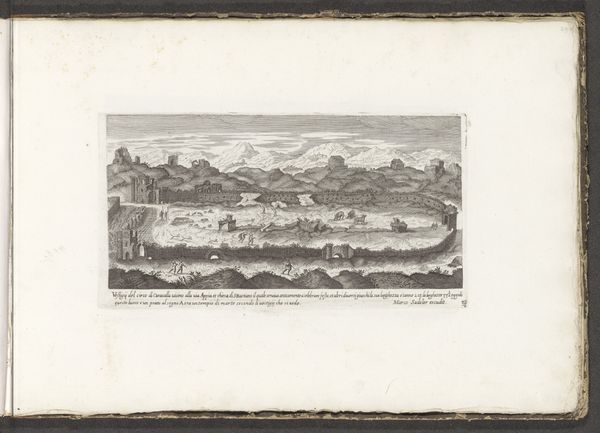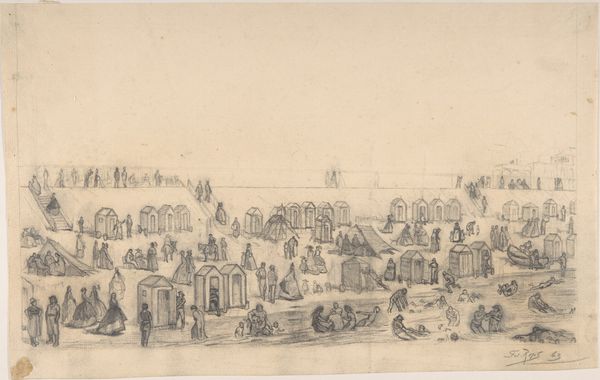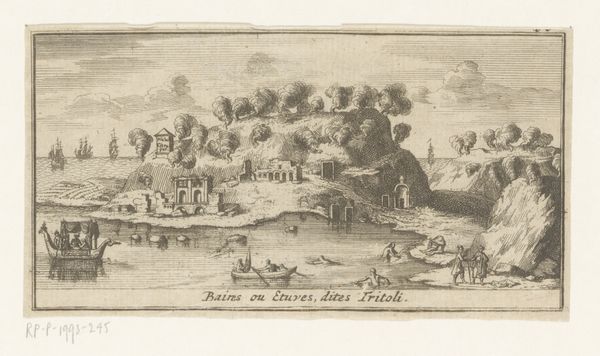
print, engraving
#
narrative-art
#
baroque
# print
#
asian-art
#
old engraving style
#
landscape
#
engraving
Dimensions: height 145 mm, width 215 mm
Copyright: Rijks Museum: Open Domain
Editor: This is "The Palace and the Elephants of the King of Tuban," a print from around the early 1600s. The overall impression I get is one of austere order; everything is neatly arranged, like a miniature city. How would you interpret this work from a formal perspective? Curator: Let’s focus on how the engraving creates meaning. Observe the rigorous structure: the strong horizontal lines of the architecture, offset by the repetition of the vertical posts supporting each elephant shelter. Do you see how the engraver uses line variation to define the forms? Editor: Yes, I notice the lines get denser to indicate shadow, giving the forms a sense of volume, especially the elephants themselves. Curator: Precisely. And what about the spatial relationships? Consider the composition; the way the palace at the top and what seems to be a king's ritual on the left are juxtaposed with the repetitive rows of elephants in their shelters. What does this structured, almost geometric arrangement, convey? Editor: Maybe it's meant to show the king's power, displaying his control over both the human and animal realms? The uniformity underscores a sense of royal authority. Curator: An astute observation. The repetitive structures establish a visual rhythm. Notice how the artist renders space: objects recede into the distance. Editor: That is masterful; it enhances the almost surreal feeling. It's both a detailed record and a constructed scene. I will surely never see the artwork the same way again! Curator: And how fascinating is that: To grasp the artist's process and the composition's effect adds a layer of intellectual pleasure to aesthetic viewing!
Comments
No comments
Be the first to comment and join the conversation on the ultimate creative platform.
